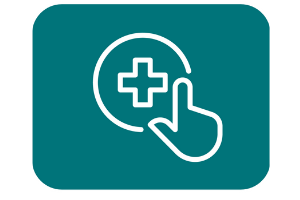The Armstrong Institute for Patient Safety and Quality provides an infrastructure that oversees, coordinates and supports patient safety and quality efforts across Johns Hopkins' integrated health care system. Our mission is to eliminate patient harm, achieve best patient outcomes at the lowest possible cost and share that knowledge through our research and trainings.
-
Clinical Operations
Providing highest quality and safest care at Johns Hopkins Medicine

-
Research
Advancing the science of safety and quality

-
Education & Training
Partnering with others to improve patient care

-
Our Team
Meet our community of safety and quality investigators

-
About Us
Learn about our history, the work we do and how to join the Armstrong team

-
Donate
Your gift can help improve patient safety and quality of care

Other Featured News and Research
Algorithms at the Bedside: Moving Past Development and Validation
Ayse P. Gurses, Ph.D., M.S., and collaborators recently published a report in the Pediatric Critical Care Medicine journal discussing how machine learning could potentially help in the critical care field, but it must be designed and implemented considering the realities of clinical work and by using a participatory human-centered design.
Making a career in patient safety: How I got hooked
In this article, Albert Wu, M.D., and colleagues discuss how they entered the patient safety field and how it has grown into a new field of research and practice in the last three decades, with an increasing number of opportunities to work in research, practice and policy.
Characterizing changes to older adults' care transition patterns from hospital to home care in the initial year of COVID-19
Skilled home healthcare (HH) provided in-person care to older adults during the COVID-19 pandemic, yet little is known about the pandemic's impact on HH care transition patterns. This publication investigated the pandemic's impact on HH service volume, population characteristics, and care transition patterns for older adults receiving HH services after hospital or skilled nursing facility discharge.
Understanding the Information Needs of Pharmacy Staff Using CancelRx: A Qualitative Study of the Use of Prescription E-cancellation
In this study, Samantha Pitts, M.D., M.P.H., and colleagues leverage qualitative interviews with pharmacy staff to address the following question: When medication changes are made by a prescriber using CancelRx, what information is needed by pharmacy staff to make correct and effective decisions in their roles in medication management?
Centering Health Equity in the Implementation of the Hospital Incident Command System: A Qualitative Case Comparison Study
In this study, Christina T. Yuan, Ph.D., M.P.H., Jill Marsteller, Ph.D., M.P.P., and colleagues examine how two health systems prioritized equity in implementing the Hospital Incident Command System during the COVID-19 pandemic and identified factors that influenced implementation.
The Role for Policy in AI-Assisted Medical Diagnosis
In this paper, David Newman-Toker, M.D., Ph.D., and colleague discuss how health care organizations are rapidly embracing ChatGPT (OpenAI), and many now believe that artificial intelligence will swiftly transform medical practice. Chatbots are already helping to redesign the medical workflow, schedule appointments and even answer routine patient questions, but the role of these new technologies for improving medical diagnosis is still an open question.
"Never Again”
Sharing his personal story of how a medical error severely impacted his life, C. Michael Armstrong, past chairman of the board of trustees of Johns Hopkins Medicine, explains his commitment to health care improvement and the creation of the Armstrong Institute for Patient Safety and Quality.
Learn about Our History










